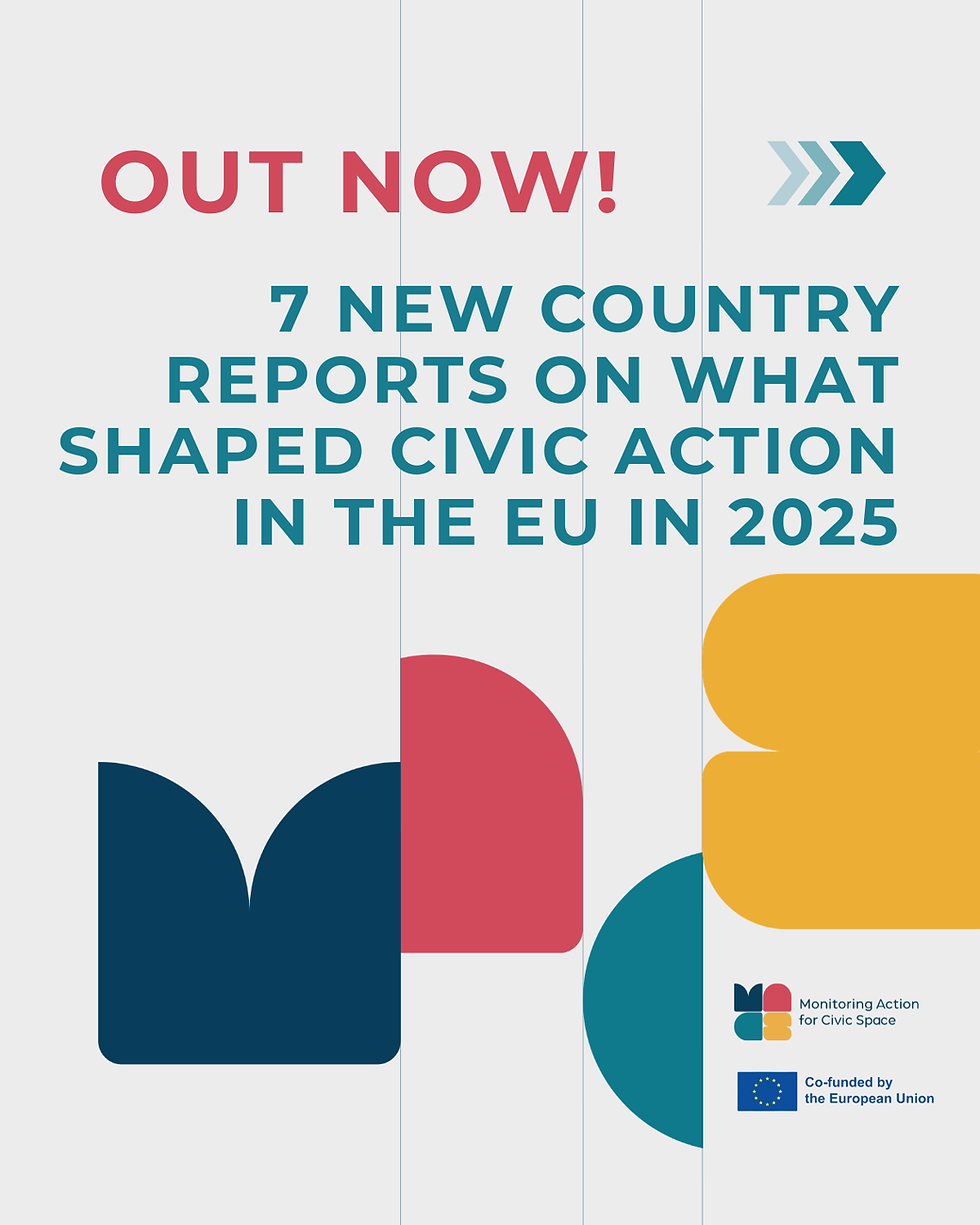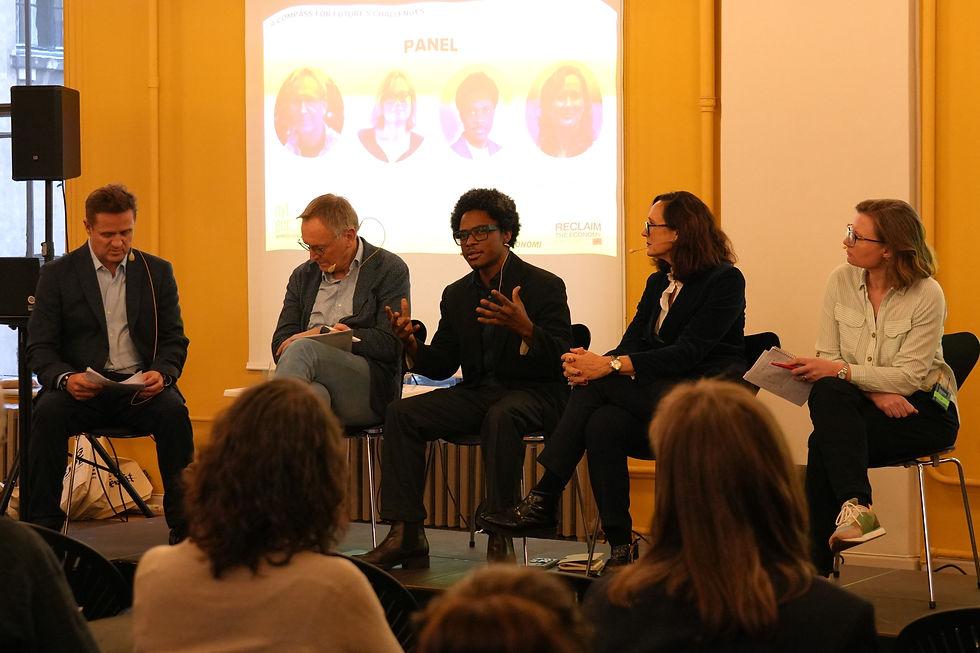A History of Optimism
- 14. jan. 2022
- 4 min læsning
Opdateret: 18. jan. 2022
Foreword by Lone Loklindt, Chair of Nyt Europa
With the collapse of the Soviet Union and the fall of the Berlin Wall a wave of optimism swept across the European continent. 1989 heralded a new era of hope and relegated the brutalities of authoritarianism to the pages of history. Finally, people who had lived under strict control and surveillance had earned a future of civil liberties under the frame of democratic rule. Civil society emerged in areas which until now have been devoid of such representation. Civil society activities no longer had to be disguised or defined by the narrow boundaries of the state apparatus. Optimism became a synonym for the time.
However, 30 years have passed and much have changed in between. In 15 years, the European continent went from disharmony and separation to unity and integration, the adoption of the Copenhagen criteria, EU charter of Fundamental rights, culminating in 2004 with the EU enlargement. An extraordinary achievement considering European history.
But the past 15 years have also seen dramatic changes. Skepticism and pessimism regarding the future have to a certain extent replaced the optimism that arose with the end of communist authoritarianism. Contemporary populist movements and isolationist forces threaten civil society, democratic values and the democratic freedoms associated with the EU, which emerged in the years between 1989 and 2004. Raising awareness of our history and the values our historical development has brought are essential to understanding and appreciating the democratic freedoms which have followed, and which are integral parts of the EU institutions. We believe that there is a need to address that the complexities within our European societies, and to emphasize that they are not created on the spur of the moment but rooted in the past as our union continues to develop and face different challenges to the very values it is funded on.
"To facilitate change civic engagement plays an important role, but further we need accountability on a political level"
At Nyt Europa we have engaged with the history of democratic development in the EU as well as the current issues at hand of democratic backsliding. This have inspired us to gather inputs from our partners to create a report presenting not only a historic perspective on the current trends but also a multifaceted perspective entailing lived experience from the activist and CSO’s currently dealing with the issues at hand.
This report has grown from the EU Commission funded project History of Optimism, managed by Nyt Europa from 2019-2021. The project specifically focuses on the role of civil society, in a historical context, providing a new and powerful approach to understanding EU values and assessing our collective historical past. And let people tell their stories by stimulating debate and reflection about the role of civil society in the EU – then and now. This report is for those who take an interest in democracy. We believe that bringing awareness to the challenges facing democracy is a crucial step to mobilize action that can prevent the tendencies of democratic backsliding. To facilitate change civic engagement plays an important role, but further we need accountability on a political level. Therefore, this report addresses the political implications and steps that must be taken given the current situation that constitutes a concrete threat to our current democratic institutions and their legitimacy.
Throughout this report we have gathered testimonies from activists, experts, and scholars that we have encountered during our work, and with whom we have shared conversations about the future of European democracy. We have incorporated data to support their analyses to give you/the reader an insight into the current struggles we face as a democratic European fellowship, and how to understand the historic context of the concept it relies on such as rule of law, participatory democracy, and civic space. This report thereby connects the struggle of civil society today to a historical context, providing a new and powerful approach to understanding EU values and how we assess our collective historical past finally resulting in concrete recommendations going forward to support those democracy champions.
We hope that this report contributes to an increased awareness and insight in the democratic trends and conditions for the developments of democracy in Europe and the important role civic society have and continue to play in the fight for democratic rights and values.
It might be as crucial as ever that we succeed in supporting the civil actors’ efforts to protect our democracy. While the analysis of democratic trends uncovers an unpreceded democratic crisis in modern time, we are also witnessing nothing short of a wave of citizens engagement
As director of the Open Society European Policy Institute Heather Grabbe writes in her chapter (Part I: Failed expectations and the struggles for civil society in Europe post 1989):
“There are reasons for pessimism. The pressures on civil society are unprecedented. But there are also reasons for optimism. That people are prepared to go out on the streets and talk about issues that they really do care about.”
Positives and negatives. No doubt this movement of back and forth of attitudes towards democracy highlight the precariousness of the concepts of rule of law and fundamental rights. They can never be taken for granted as they may have been in a not-so-distant past. This awareness must lead to adaption techniques, new ways of engagement on citizens level as well as the construction of new tools for protection of our shared European values. We see now as an example that the EU previously have focused almost exclusively on sanctions and condemnation as a response to democratic backsliding. But the spirit of new strategic framework in EU Rights and values-program to protect and promote EU values and promote citizens engagement and participation in the democratic life of the EU as well as to raise awareness of the common European history just may signify a change of policy where exactly the importance of a strong civil society has been rediscovered as a crucial part of the fight for democratic rights. And the fight continues.
"It might be as crucial as ever that we succeed in supporting the civil actors’ efforts to protect our democracy"




Kommentarer